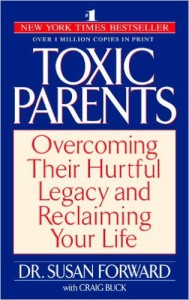 This is from Dr. Susan Forward’s book Toxic Parents but if you substitute “person” for parent it’s easy to see that this applies to most cases of hurt and harm no matter what the situation or relationship.
This is from Dr. Susan Forward’s book Toxic Parents but if you substitute “person” for parent it’s easy to see that this applies to most cases of hurt and harm no matter what the situation or relationship.
“One of the most dangerous things about forgiveness is that it undercuts your ability to let go of your pent-up emotions. How can you acknowledge your anger against a parent whom you’ve already forgiven? Responsibility can go only one of two places: outward, onto the people who have hurt you, or inward, into yourself. Someone’s got to be responsible. So you may forgive your parents but end up hating yourself all the more in exchange.
I also noticed that many clients rushed to forgiveness to avoid much of the painful work of therapy. They believed that by forgiving they could find a shortcut to feeling better. A handful of them ‘forgave,’ left therapy, and wound up sinking even deeper into depression or anxiety.
Several of these clients clung to their fantasies: ‘All I have to do is forgive and I will be healed, I will have wonderful mental health, everybody is going to love everybody, we’ll hug a lot, and we’ll finally be happy.’ Clients all too often discovered that the empty promise of forgiveness had merely set them up for bitter disappointment. Some of them experienced a rush of well-being, but it didn’t last because nothing had really changed in the way they felt or in their family interactions….
People can forgive toxic parents, but they should do it at the conclusion – not at the beginning – of their emotional housecleaning. People need to get angry about what happened to them. They need to grieve over the fact that they never had the parental love they yearned for. They need to stop diminishing or discounting the damage that was done to them. Too often, ‘forgive and forget’ means ‘pretend it didn’t happen.’
I also believe that forgiveness is appropriate only when parents do something to earn it. Toxic parents especially the more abusive ones, need to acknowledge what happened, take responsibility, and show a willingness to make amends. If you unilaterally absolve parents who continue to treat you badly, who deny much of your reality and feelings, and who continue to project blame onto you, you may seriously impede the emotional work you need to do.”

Aha… here is the missing piece….! thank you Teri, and Dr. Susan,!
as was written “noticed that many clients rush to forgiveness to avoid much of the painful work of therapy” Painful work means being true to their feelings, and expressing them. Even journaling to begin with, and sharing their journal pieces with therapist.